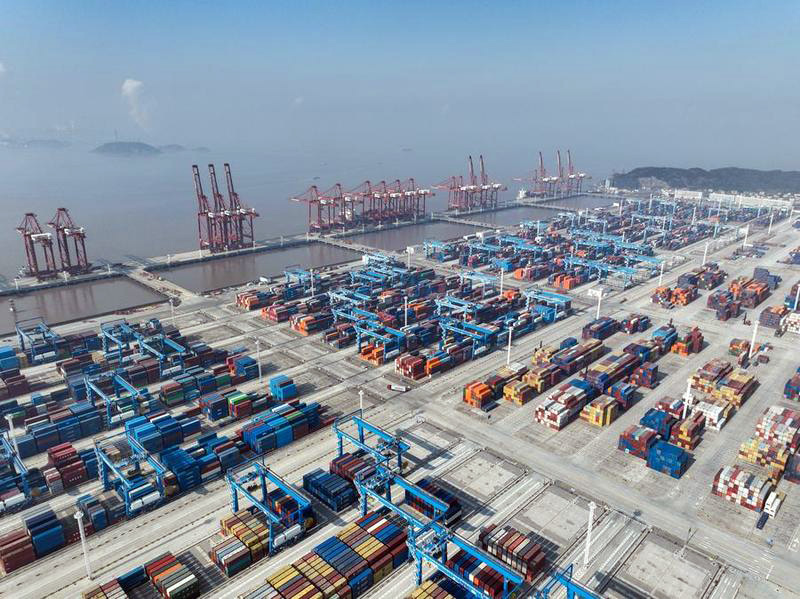
Lawmakers in China are reviewing a draft revision to the country's Foreign Trade Law, which seeks to elevate multiple reform measures into national legislation in response to a rapidly evolving global trading landscape and ongoing domestic economic reforms.
The 11-chapter, 80-article draft of the Foreign Trade Law was submitted on Monday to the ongoing session of the Standing Committee of the National People's Congress, China's top legislature, for deliberation.
The draft revision aims to upgrade reform measures into national law, including a negative list system for managing cross-border trade in services, as well as reform measures on promoting new forms and models of foreign trade, encouraging digital trade and establishing a green trade system, in an effort to ensure their implementation.
READ MORE: New markets to spur foreign trade
To further optimize the foreign trade environment, the draft emphasizes strengthening the protection of intellectual property rights concerning foreign trade and establishing a trade adjustment assistance system to stabilize industrial and supply chains.
Under the framework of the World Trade Organization, the draft emphasizes the need to prohibit or restrict the import and export of relevant goods and technologies, as well as related international trade in services, or to take other necessary measures on grounds such as safeguarding national security.
With respect to foreign individuals or organizations that engage in activities jeopardizing China's sovereignty, security, or development interests, the draft puts forward measures to prohibit or restrict their involvement in foreign trade activities related to China.
Explaining the draft to lawmakers, Commerce Minister Wang Wentao said that unilateralism, protectionism and bullying practices are on the rise internationally, and it is imperative to enhance and refine corresponding countermeasures at the legal level.
ALSO READ: China’s foreign trade grows 3.5% in first eight months of 2025
Wang noted that as foreign trade reforms have moved ahead, new business models and practices have flourished in recent years.
It is essential to balance openness and security by prudently establishing preemptive countermeasures in foreign trade and further enhancing the legal toolkit amid external challenges, Wang stressed.
"Grounded in China's specific conditions and drawing on internationally accepted rules as well as relevant practices from other countries, the amendment aims to tackle prominent issues in the field of foreign trade and enhance the law's relevance, effectiveness and adaptability," Wang said.
Contact the writer at wangkeju@chinadaiy.com.cn


